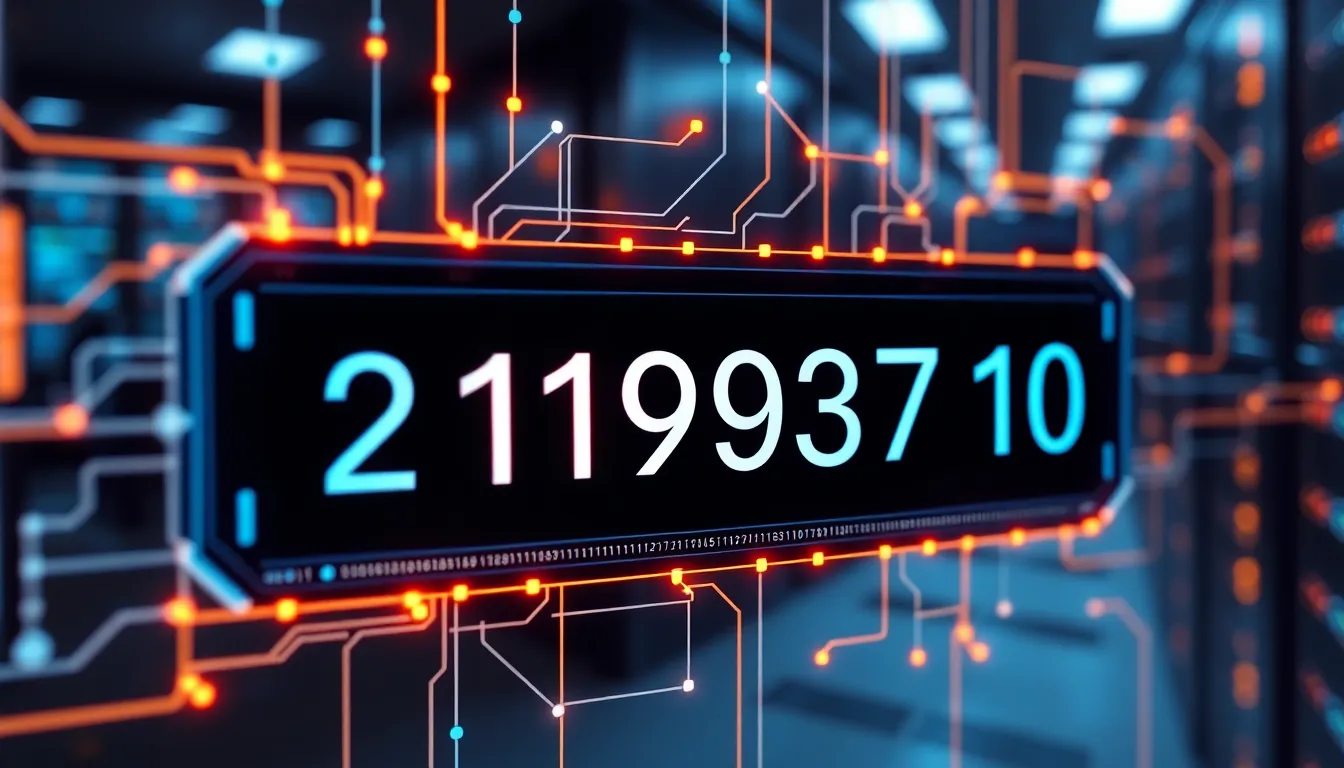In an age where connectivity is key, understanding the significance of numbers like 2111903710 can open doors to new insights. This seemingly random sequence holds potential meaning and relevance in various contexts, from telecommunications to coding systems. As technology evolves, the importance of deciphering such numbers becomes increasingly apparent.
Exploring 2111903710 reveals its potential applications and the significance it may carry in different fields. Whether it’s related to customer service, data management, or even cryptography, the implications of this number stretch far beyond its surface. By diving deeper, one can uncover the layers of meaning that numbers like this can represent in our interconnected world.
Table of Contents
ToggleOverview of 2111903710
Understanding 2111903710 is vital in various domains, especially telecommunications and coding systems. This number exhibits significant relevance in technology, customer service, and data management.
Description and Significance
2111903710 functions as a unique identifier in multiple contexts, such as databases and telecommunications systems. Its structure often denotes specific attributes, allowing for efficient data processing and retrieval. The significance of such numbers lies in their ability to streamline operations and enhance user experiences across diverse platforms. For instance, in customer service, it can represent a specific query type, thereby improving response accuracy.
Key Features
- Identification: 2111903710 serves as a distinct code, ensuring unique representation across systems.
- Efficiency: The number aids in quick data access and processing, reducing response time in customer service scenarios.
- Versatility: Applicable in various fields like telecommunications, data security, and even cryptography, it offers broad utility.
- Enhanced Security: In cryptographic applications, this number can encode sensitive information, safeguarding data against unauthorized access.
- Standardization: Adopting such identifiers promotes consistency and interoperability within technological frameworks.
Applications of 2111903710


The number 2111903710 finds diverse applications across various industries, serving essential roles in data organization, telecommunications, and security.
Industry Impacts
- Telecommunications: In telecommunications, 2111903710 acts as a critical unique identifier, enabling efficient routing and connection management. It streamlines the process of linking users to services, improves call quality, and minimizes latency.
- Data Management: This number enhances data management practices by facilitating quick retrieval and processing of information. Organizations leverage its structure to improve database efficiency, ensuring high availability and reliability of data systems.
- Cryptography: Within cryptographic frameworks, 2111903710 serves as a means to encode sensitive data, strengthening security protocols. By using this number, systems can standardize encryption processes, thereby reducing vulnerabilities associated with data transmission.
- Customer Service: In customer service applications, 2111903710 helps create a more organized approach to ticket management and user tracking. It allows for quicker resolution times and improved customer satisfaction.
Use Cases
- Unique Identification: Various platforms utilize 2111903710 as a unique code for user identification in databases, ensuring seamless integration and data consistency across systems.
- Secure Transactions: Businesses implement this number in secure transaction protocols to ensure that sensitive information remains protected during exchanges between parties.
- Automated Systems: Automated systems and bots apply 2111903710 to distinguish between different functions. By doing so, they enhance operational efficiency in automated workflows.
- Interoperability: In data-sharing scenarios among different systems, this number promotes interoperability, allowing various technologies to communicate effectively without compatibility issues.
Advantages of Using 2111903710
Using 2111903710 presents numerous advantages across various fields, enhancing operational processes and user interactions. Its design and capabilities significantly improve efficiency, effectiveness, and cost-management strategies.
Efficiency and Effectiveness
2111903710 streamlines operations by serving as a unique identifier in databases, reducing the time required for data retrieval. It facilitates quick access to information, allowing businesses to process requests efficiently. In telecommunications, it enhances routing algorithms, resulting in improved call quality and lower latency. By improving data management, it ensures that information is organized and easily accessible, leading to increased productivity. The clarity and structure of 2111903710 allow automated systems to function seamlessly, contributing to a more effective user experience.
Cost-Effectiveness
Implementing 2111903710 leads to significant cost savings for organizations. Its standardization reduces the complexity of developing multiple identification systems, minimizing development and maintenance costs. Moreover, improved efficiency translates to reduced operational costs, as quicker data processing and retrieval limit the need for additional resources. In customer service, optimized ticket management through 2111903710 results in lower support costs while improving resolution times. Overall, using 2111903710 not only boosts performance but also enhances the financial efficiency of various technologies and systems.
Challenges and Limitations
Understanding the challenges and limitations associated with the use of 2111903710 is essential for maximizing its potential across various domains. Addressing these issues ensures more effective implementation and operational efficiency.
Common Issues
Common issues surrounding 2111903710 involve data integrity, dependency on technology, and interoperability constraints.
- Data Integrity: Errors in data entry or processing can lead to inconsistencies that compromise the effectiveness of 2111903710 as a unique identifier.
- Dependency on Technology: Over-reliance on digital systems exposes organizations to risks from system failures or cyberattacks, affecting accessibility and reliability.
- Interoperability Constraints: Diverse coding standards across platforms can hinder seamless integration of 2111903710, complicating data-sharing processes within and between organizations.
Future Improvements
Future improvements can enhance the functionality and reliability of 2111903710 in various contexts.
- Enhanced Validation Mechanisms: Implementing robust validation processes minimizes data entry errors, ensuring accuracy and reliability.
- Standardization Across Platforms: Developing universal standards for 2111903710 promotes consistency, improving interoperability and allowing for smoother integration of systems.
- Cybersecurity Advancements: Investing in advanced cybersecurity measures strengthens the protection of systems using 2111903710, safeguarding sensitive data from unauthorized access.
Exploring these improvements aids in overcoming challenges, unlocking the full potential of 2111903710 alongside evolving technological landscapes.
Understanding 2111903710 is vital in today’s tech-driven landscape. Its diverse applications across telecommunications, data management, and cryptography underscore its importance as a unique identifier. By streamlining operations and enhancing user experiences, it proves to be a powerful tool in various industries.
Despite the challenges associated with its implementation, the potential for improved efficiency and security remains significant. As technology continues to evolve, addressing these challenges will be crucial for maximizing the benefits of 2111903710. Embracing its capabilities can lead to more effective systems and enhanced interactions across platforms.


